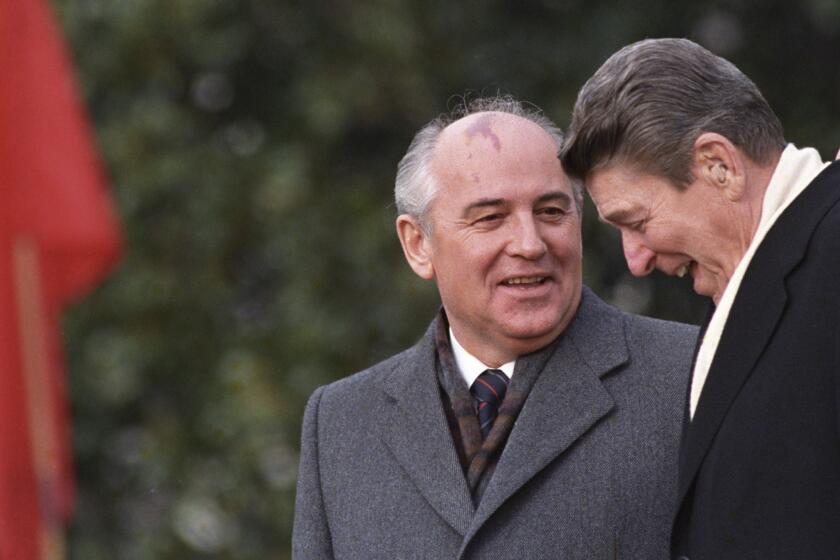America From Abroad : Dear Mr. President
- Share via
Foreign policy may have played second fiddle--or second saxophone--to domestic problems in the U.S. presidential campaign that culminates today. But in fact, whether it turns out to be President Bush, President Clinton or President Perot, the man who occupies the White House for the next four years will spend a lot of that time coping with global issues.
What kind of advice is the winner likely to hear from the men and women who are paid to be America’s eyes and ears in foreign capitals?
World Report asked Times correspondents in Berlin, Brussels, Jerusalem, Johannesburg, London, Mexico City, Moscow, Toronto and Tokyo to step into the shoes of the political secretaries of the American embassies in those cities and offer some tips in a memo to the new President . . .
JERUSALEM
‘Make a lunch date next week with the peace negotiators . . . ‘
The whole Middle East has been waiting for the U.S. presidential election, and now it is watching to see what you will do. Such is the importance of the role of the United States in the region.
During your Administration, the United States will have a historic opportunity to play a key role in bringing the Mideast conflict to an end through the negotiations, now a year old, between Israel and its Arab neighbors.
What all sides are looking for from you is an immediate commitment to accelerate the peace process. Historically, the only real progress in Arab-Israeli negotiations has come with the personal intervention of the U.S. President or secretary of state. It is imperative that you affirm your intention to be involved directly.
Two immediate suggestions:
Despite your preoccupation with shaping your Administration and the priority that domestic issues will necessarily have, make time to invite the Israeli and Arab negotiators to lunch when they reconvene in Washington next Monday and thus demonstrate your determination that there be no hiatus in the talks.
Next, appoint a special presidential envoy to the Middle East. Former Secretary of State James A. Baker III is probably interested in the job, former President Jimmy Carter is hinting that he is too. While the Washington talks are the major negotiating forum, Israel and the Arabs are anxiously looking for a back channel as well, and if you don’t want it to be France, you must appoint your special envoy now.
Perhaps the trickiest issue you will face in the next few months is how to deal directly and at a high level with the Palestine Liberation Organization. U.S. mediation will be crucial in bringing the Palestinians to self-government and eventually to statehood, and the PLO will be involved. Although Israel is effectively negotiating with the PLO in the current Washington talks, you will have to find a way to talk with the PLO that doesn’t alienate Israel and force Prime Minister Yitzhak Rabin into a corner on this sensitive issue.
Israel’s ability to make the difficult compromises necessary for peace will depend, first, on its sense of security but also on a sense of progress, including economic development.
More to Read
Get the L.A. Times Politics newsletter
Deeply reported insights into legislation, politics and policy from Sacramento, Washington and beyond. In your inbox twice per week.
You may occasionally receive promotional content from the Los Angeles Times.










